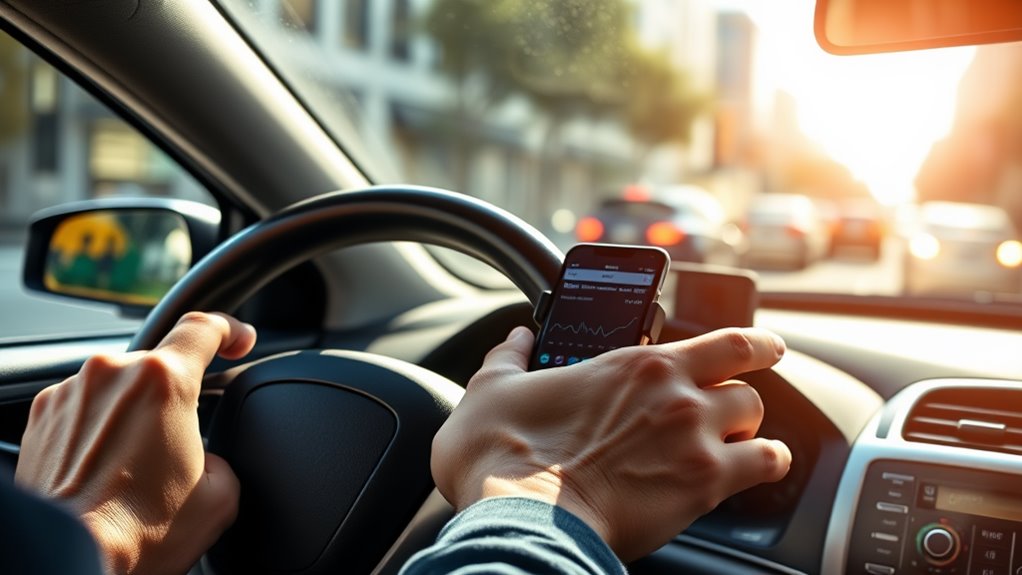Did you know that drivers enrolled in Usage-Based Insurance (UBI) programs can reduce their premiums by as much as 30% through safer driving habits? This financial incentive leads many to adjust their behaviors behind the wheel, fostering a culture of mindfulness. However, the impact of UBI goes beyond just discounts; it raises questions about how these changes affect overall road safety and driver education. What other implications could arise from this shift in driving dynamics?
As you navigate the roads, the concept of Usage-Based Insurance (UBI) increasingly shapes how insurance premiums are determined. Utilizing telematics technology, UBI collects data on your driving habits—like speed, braking patterns, and the time of day you drive. This approach shifts the focus from traditional metrics, such as age or vehicle type, to a more personalized assessment based on your actual driving behaviors. By doing so, UBI aims to adjust insurance premiums according to individual driving habits, emphasizing safer practices and potentially resulting in discounts for those who demonstrate responsible driving.
The knowledge that your driving behavior is under scrutiny can greatly influence your habits. When you realize that hard braking or excessive speeding could lead to higher rates, you naturally become more cautious. Research supports this notion, indicating that drivers often modify their behaviors to lower their UBI scores. Particularly, women and young drivers have shown a marked improvement in driving habits when enrolled in UBI programs. Demonstrating behaviors like smooth acceleration and adherence to speed limits not only earns you discounts but also enhances overall road safety. Additionally, many drivers find that affordable auto insurance becomes more attainable when they improve their driving habits.
Within weeks of implementing telematics devices, many drivers begin to exhibit safer habits. By being aware of their driving patterns, they're encouraged to optimize their driving times, steering clear of risky nighttime driving. Additionally, UBI promotes eco-friendly practices, as it encourages you to drive less, contributing to reduced pollution. The awareness of how your driving style can impact insurance rates often leads you to rethink route choices, opting for paths that minimize aggressive driving scores. This increased mindfulness fosters better decision-making while behind the wheel.
The benefits of UBI extend beyond just potential cost savings. By providing real-time feedback, UBI actively encourages better driving habits. This personalized approach makes insurance rates more equitable, aligning costs with actual driving behavior instead of generalized risk factors. UBI also plays a crucial role in facilitating accident investigations, as it provides detailed data on driving patterns leading up to incidents, which can be crucial for accident investigations. In addition, it supports environmentally friendly driving by discouraging unnecessary trips, thereby promoting sustainability.
Several factors influence UBI assurance costs. Mileage stands out as a key determinant; generally, lower mileage translates to lower insurance costs. Speed and braking behaviors are closely monitored, with smooth driving patterns rewarded. Sudden accelerations typically incur penalties, further incentivizing responsible driving. Additionally, the time of day you choose to drive can impact your rates, as driving during safer hours is often less expensive. While UBI emphasizes individual driving habits, elements like vehicle type and overall driving history continue to play a role in shaping rates.
Technologies like built-in vehicle systems, plug-in devices, and smartphone apps facilitate the UBI experience, collecting essential driving data through GPS and onboard diagnostics. These innovations not only enhance the accuracy of driving assessments but also empower you to take control of your insurance costs. As UBI continues to evolve, its influence on driving habits becomes increasingly pronounced, fostering a culture of safety and responsibility on the road.
Conclusion
In the domain of driving, usage-based insurance acts as a mirror, reflecting your habits and choices on the road. As you endeavor for discounts and safer practices, that mirror reveals areas for improvement, fostering a culture of mindfulness. This not only leads to lower premiums but also enhances overall road safety. By embracing this innovative approach, you're not just changing your driving; you're contributing to a broader movement toward responsible and conscientious road use.

